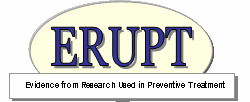
The fissure-sealing of newly erupted molars is an effective caries prevention treatment, but remains underutilised. Two plausible reasons are the financial disincentive produced by the dental remuneration system, and dentists' lack of awareness of evidence-based practice. The primary hypothesis in this CSO/SHEFC funded study was that implementation strategies based on remuneration or training in evidence-based healthcare would produce a higher proportion of children receiving sealed second permanent molars than standard care. The four study arms were: fee per sealant treatment, education in evidence-based practice, fee plus education, and control. A cost-effectiveness analysis was conducted. Analysis was based on 133 dentists and 2833 children. After adjustment for baseline differences, the primary outcome was 9.8% higher when a fee was offered. The education intervention had no statistically significant effect. 'Fee only' was the most cost-effective intervention. The study contributes to the incentives in health care provision debate, and led to the introduction of a direct fee for this treatment in Scotland.
Contacts
- Craig Ramsay; c.r.ramsay@abdn.ac.uk
Status
CompletedPublications
Clarkson JE, Turner S, Grimshaw JM, Ramsay CR, Johnston M, Scott A, Bonetti D, Tilley CJ, Maclennan G, Ibbetson R, MacPherson L, Pitts NB. Changing clinician behaviour:money a randomized controlled trial of fees and education. J Dent Res 2008; 87(7):640-4.
